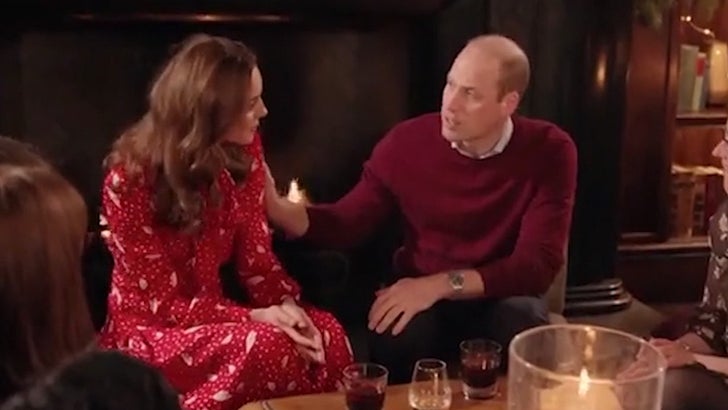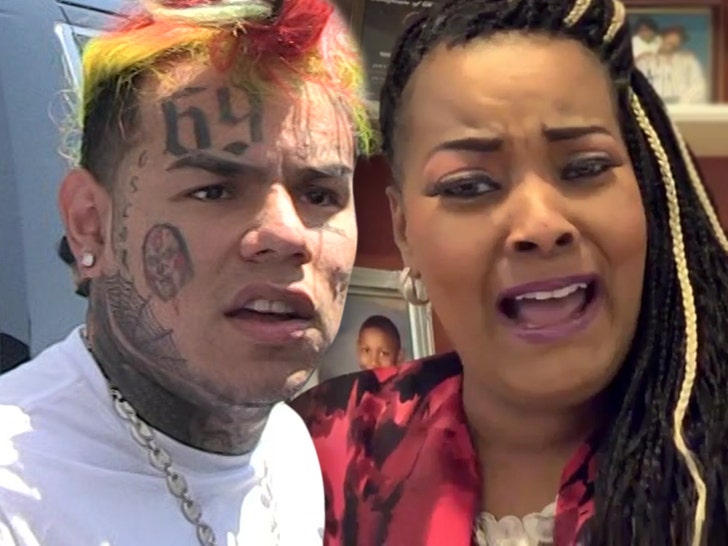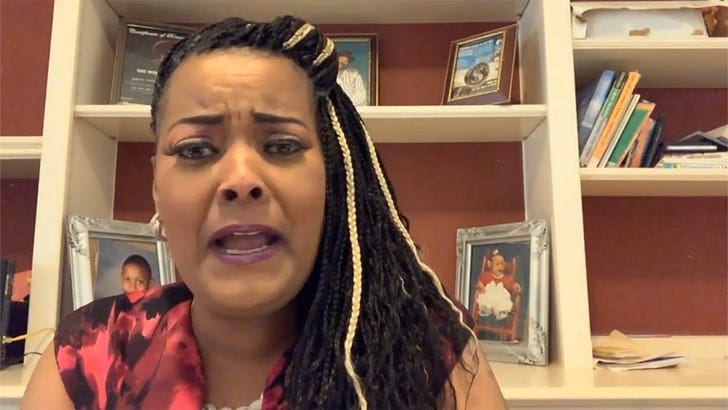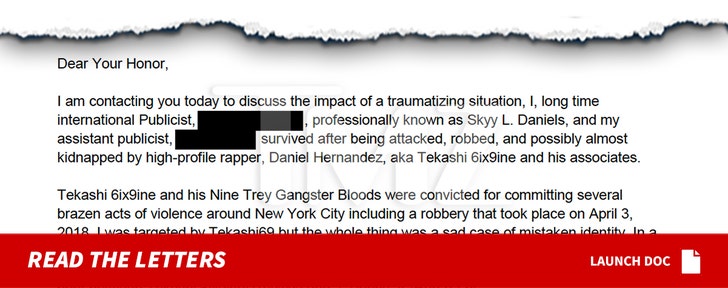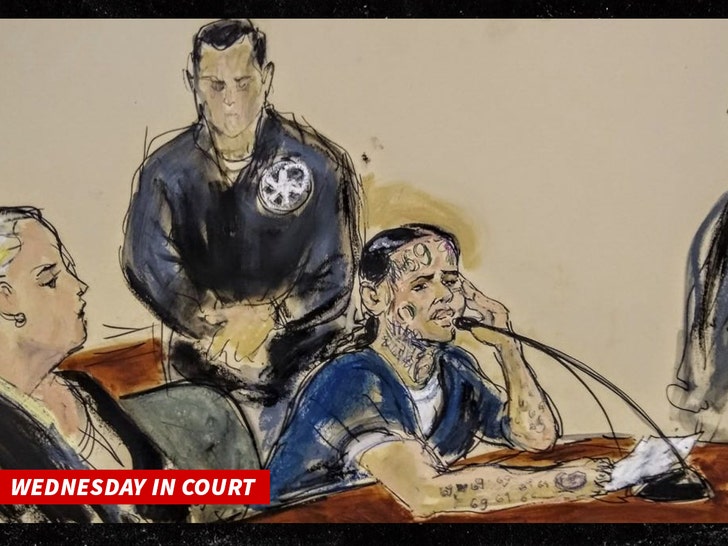With a big sword and a silly ponytail, Henry Cavill traverses a fantasy realm fighting CG monsters in Netflix's adaptation of Andrzej Sapkowski's cult fiction.
The brand behind Netflix's The Witcher started with a series of stories and books by Polish writer Andrzej Sapkowski. It has spawned comics, an earlier TV series, a movie, a slew of video games, a role-playing game, a card game and a popular TCBY mix-in. It's a vast enough empire to intimidate anybody who reads the name of the franchise's main character — "Geralt of Rivia" — and assumes it's a drunken mistyping of that guy who once postured and preened in from of Al Capone's vault.
This review is for those people, not those looking for differences between the book and the game and the show, those hungry for easter eggs. This review is for people who see the trailers and say, "If I know nothing about this franchise, but really want to watch Henry Cavill with a ridiculous white ponytail, waving a gigantic sword and growling, will I enjoy The Witcher?"
I wish I had a clear answer for you, because the answer through the series' first five episodes is somewhere between "Occasionally" and "Depending on your patience."
Cavill plays Geralt of Rivia, legendary witcher in a pseudo-medieval fantasy realm known as the Continent. What is a witcher and why does your autocorrect keep rejecting it as a word? Well, a witcher is, so far as I can tell, kinda a man-witch? But not a warlock, because that would be a word that autocorrect recognizes. The series attempts to normalize the word "witcher" through constant repetition of dialogue like, "You must be a witcher" and "Oh, you're that witcher" and "I've heard about witchers but never thought to see one." Witchers are mutants with some magical powers — and/or abilities to defy magical powers — who roam the land fighting monsters as ronin-style mercenaries. They can't experience emotions, but they can apparently experience sexual pleasure? Or maybe they're just ageless and so they have to fill in the time somehow.
So Geralt traverses the land on his friendly steed — Roach, I think? — collecting small bounties for taking on creatures ripped from the pages of a vintage European fairy tale book. At the same time, series creator Lauren Schmidt Hissrich is introducing two other characters — flaxen-haired princess Ciri (Freya Allan) and aspiring mage and current hunchback Yennefer (Anya Chalotra) — who are going through their own separate adventures, even though we know all the while that eventually Geralt and Ciri and Yennefer will join forces in some capacity, though that's occurring at a pace most generously described as "Needlessly slow."
In the early going, each of those storylines is something different. Geralt is, and this amuses me to no end, basically in a monster-of-the-week procedural, where he doesn't evolve much as a character, but he does reluctantly pick up a sidekick in Joey Batey's lusty, star-struck bard Jaskier. Yennefer is in an extended training montage, basically, in which she evolves rather significantly. And Ciri? It's hard to explain what she's doing or if she's changing, though it's a bit like a discarded subplot from a Game of Thrones prequel.
I can best boil down the quality of The Witcher in this binary:
When The Witcher is taking itself seriously, it's fairly bad. It aspires to be lofty high fantasy and instead becomes almost endless exposition and silly names. It's the kind of far-flung mystical reach that the characters in The Magicians might find themselves accidentally transported to, only to spend an episode or two standing around making fun of everything. Any attempt to invest on a human or emotional level with the characters or their circumstances is completely pointless and that becomes rather frustrating when episodes stretch well past an hour apiece.
I've probably said this a dozen times this year and I won't hesitate to say it again in the future: Netflix, you've got to make your creators edit. If episodes of The Sopranos and The Wire rarely reached an hour, episodes of your pulp fantasy pastiche can surely come in at 50 minutes apiece. Anyway, though…
When The Witcher isn't taking itself seriously? It's reasonably fun. Fortunately, it's not taking itself seriously a lot of the time. Jaskier is a major source of cheeky, meta commentary, plus he introduces an epic ballad title "Toss a Coin to Your Witcher" that I'd like to submit for Emmy consideration, because it has been stuck in my head non-stop for the better part of a week. Jaskier complains about the excessive exposition, chides Geralt for his monosyllabic emoting and expresses confusion at every incident likely to confuse the uninitiated viewer. I'm not the least bit sure if he's a good or well-performed character. He's just thoroughly necessary.
Were I to chart the ebb and flow of The Witcher, I'd put the first couple episodes much more in the "taking themselves too seriously" camp, right up until the end of the second episode when a slew of wacky things start happening. I can't reveal any of those wacky things, because Netflix's "Do Not Reveal" list is robust for a show with reviews embargoed for premiere day. But suffice to say that as the series spirals (perhaps upwardly) into an increasingly crazy place, it becomes bloodier and more laden with gratuitous sex and nudity, though "gratuitous" is probably being the wrong word since anything that strays from dull exposition is far from "gratuitous."
Throw in the occasional sturdy sword fight, some pretty, fantasy-flavored cinematography and special effects that seem reasonably aware of their own limitations and I'd say that The Witcher is nearing an outlandish and not excessively self-serious sweet spot by the last of the five episodes I watched.
This is the level on which one can review The Witcher. It works less well when critiqued on more conventional terms. There's too much uninspired talking to praise the writing, too many stagnant framings and too much erratic pacing to praise the directing. The action set pieces aren't bad, but they feel like they're distributed sparingly as allowed by budget, not as dictated by narrative.
The acting? Well, Cavill is unrelentingly stolid and I guess that's the character, so it's hard to criticize. He wields the giant sword convincingly? When Yennefer is introduced as a limping hunchback, it feels like an embarrassing exercise for Chalotra and she treats it with the respect it deserves, eventually getting to do some entertaining things while admirably weathering the most gratuitous of the show's gratuitous nudity. I suspect I stopped watching my screeners to write this review at exactly the moment at which Allan finally got to do anything of note other than standing by with dewy princessy anticipation. More interesting and brief supporting turns come from Lars Mikkelsen, MyAnna Buring and Emma Appleton, among others.
So will you like The Witcher if you're a fan of the franchise? No clue.
Will you like The Witcher if you're a curious neophyte? Maybe, but you have to be patient with it, and if that's not your job, the outsized amusements may not be worth the convoluted build-up.
Cast: Henry Cavill, Freya Allan, Anya Chalotra
Creator: Lauren Schmidt Hissrich from the books by Andrzej Sapkowski
Premieres Friday, Dec. 20 on Netflix.
Let's block ads! (Why?)
https://news.google.com/__i/rss/rd/articles/CBMiP2h0dHBzOi8vd3d3LmhvbGx5d29vZHJlcG9ydGVyLmNvbS9yZXZpZXcvd2l0Y2hlci1yZXZpZXctMTI2NDEwMdIBQ2h0dHBzOi8vd3d3LmhvbGx5d29vZHJlcG9ydGVyLmNvbS9hbXAvcmV2aWV3L3dpdGNoZXItcmV2aWV3LTEyNjQxMDE?oc=5
2019-12-20 08:01:00Z
52780507593059
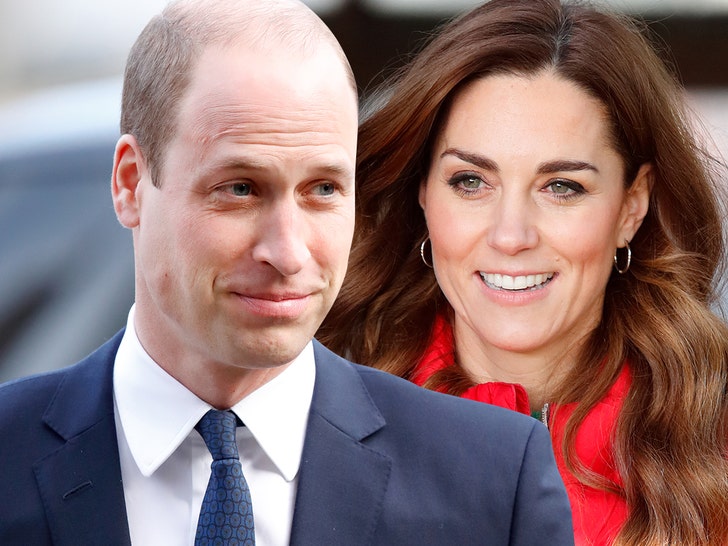
 Shutterstock Premier
Shutterstock Premier
